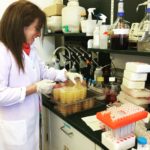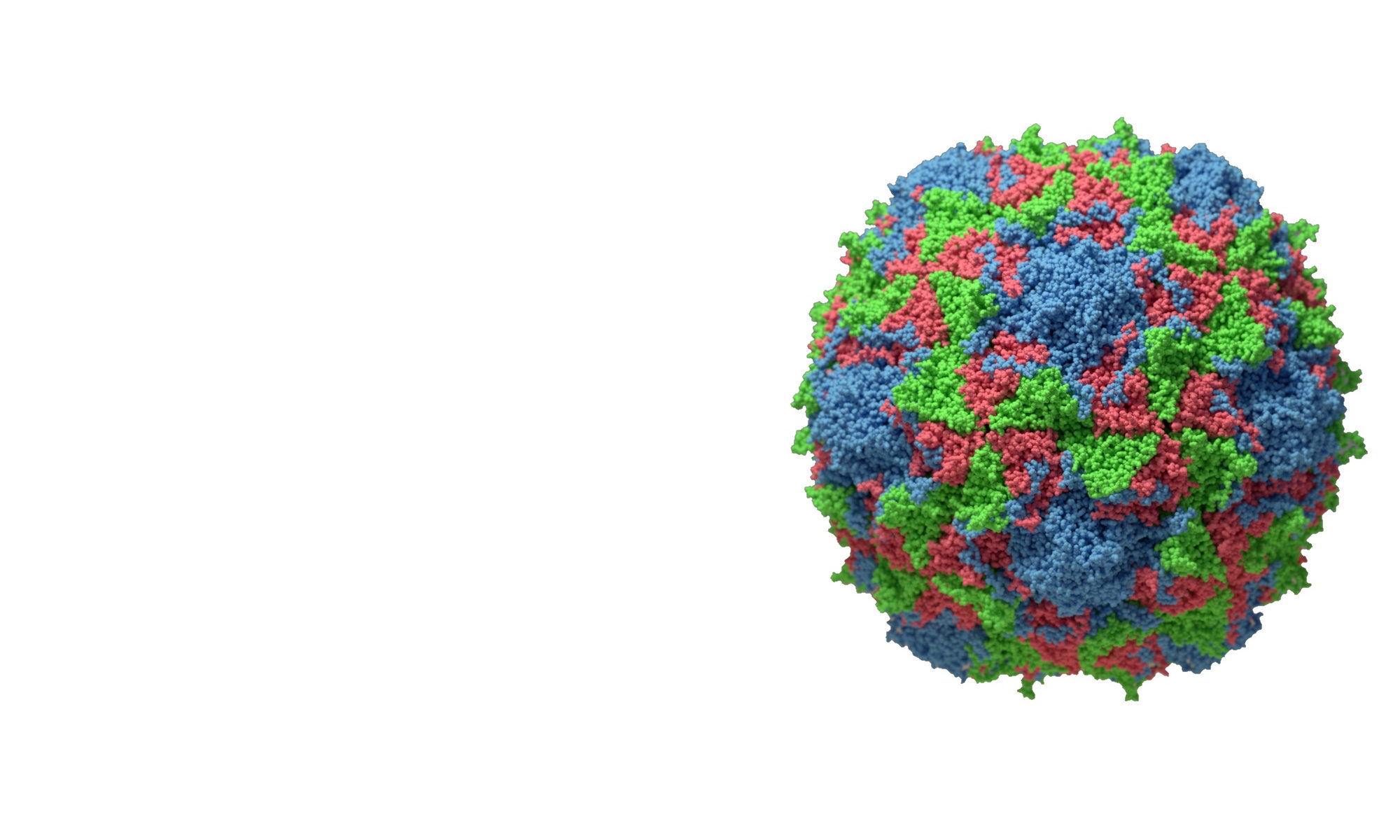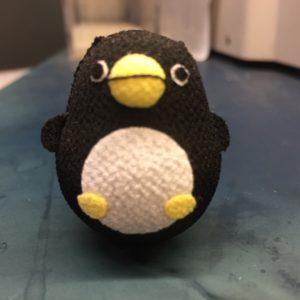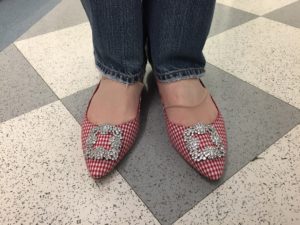 Amy B. Rosenfeld received her Ph.D. training in virology in the laboratory of Dr. Vincent Racaniello at Columbia University where she established a genetic screen to identify the cellular proteins required for translation of hepatitis C virus mRNA. As a post-doctoral fellow at McGill University, she combined both genetics and biochemical approaches to investigate the diseases that develop when translation of cellular messenger RNAs (mRNAs) is altered, including viral pathogenesis as the components of the innate immune system are translationally controlled. In 2014, she returned to the Racaniello laboratory to initiate studies on enterovirus D68, building on the laboratory’s expertise in research on picornaviruses, to identify the cellular receptor for virus attachment and cell entry. These studies facilitated the development of an in vitro system using organotypic brain slice cultures and purified astrocytes from mice to determine if enterovirus D68 (EV-D68) is neurotropic, identify the sites of virus infection within the central nervous system, and to determine if neurovirulence is a recently acquired property of the virus or is a phenotype of only some isolates. Results from this work demonstrated that EV-D68 is neurotropic and many virus isolates can infect astrocytes as well as neurons. However, EV-D68 primarily is a respiratory infection; consequently, with help from the Cardoso and Snoeck laboratories, she established airway epithelial liquid interface (ALI) cultures and organotypic respiratory slice cultures derived from mouse and human iPSCs to investigate cell tropism of EV-D68. Merging these data with an interest in host-pathogen interaction stemming from her post-doctoral work characterizing translational control of the innate immune, has led her to initiate studies investigating how inborn errors within proteins of the antiviral response influence susceptibility to EV-D68 and the cellular responses to infection.
Amy B. Rosenfeld received her Ph.D. training in virology in the laboratory of Dr. Vincent Racaniello at Columbia University where she established a genetic screen to identify the cellular proteins required for translation of hepatitis C virus mRNA. As a post-doctoral fellow at McGill University, she combined both genetics and biochemical approaches to investigate the diseases that develop when translation of cellular messenger RNAs (mRNAs) is altered, including viral pathogenesis as the components of the innate immune system are translationally controlled. In 2014, she returned to the Racaniello laboratory to initiate studies on enterovirus D68, building on the laboratory’s expertise in research on picornaviruses, to identify the cellular receptor for virus attachment and cell entry. These studies facilitated the development of an in vitro system using organotypic brain slice cultures and purified astrocytes from mice to determine if enterovirus D68 (EV-D68) is neurotropic, identify the sites of virus infection within the central nervous system, and to determine if neurovirulence is a recently acquired property of the virus or is a phenotype of only some isolates. Results from this work demonstrated that EV-D68 is neurotropic and many virus isolates can infect astrocytes as well as neurons. However, EV-D68 primarily is a respiratory infection; consequently, with help from the Cardoso and Snoeck laboratories, she established airway epithelial liquid interface (ALI) cultures and organotypic respiratory slice cultures derived from mouse and human iPSCs to investigate cell tropism of EV-D68. Merging these data with an interest in host-pathogen interaction stemming from her post-doctoral work characterizing translational control of the innate immune, has led her to initiate studies investigating how inborn errors within proteins of the antiviral response influence susceptibility to EV-D68 and the cellular responses to infection.
 Vincent R. Racaniello is Higgins Professor of Microbiology and Immunology at the College of Physicians and Surgeons of Columbia University. He received an BA degree in Biology from Cornell University in 1974, and the Ph.D. in Biomedical Sciences from Mt. Sinai School of Medicine of the City University of New York, where he worked on influenza viruses with Peter Palese. His postdoctoral work with Dr. David Baltimore at the Massachusetts Institute of Technology lead to the production of the first infectious clone of an RNA virus. In 1982 he joined the Columbia University faculty where he began work on the mechanisms of poliovirus replication and pathogenesis. His group identified the cell receptor for poliovirus, and established a transgenic mouse model for poliomyelitis. Dr. Racaniello is the recipient of an Irma T. Hirschl Career Scientist Award, the Searle Scholars Award, the Eli Lilly Award of the American Society for Microbiology in 1992, and an NIH Merit Award. He was a Harvey Society Lecturer, University Lecturer at Columbia University, the First Lamb Professor at Vanderbilt University, the Hilleman Lecture at the University of Chicago, the Sabin Lecturer at Europic 2004, and the Julius Youngner Lecturer at the University of Pittsburgh. He was a member of the WHO Steering Committee on Hepatitis/Polio, Chair of the Virology Study Section of the NIH, Co-Chair of the Gordon Conference on Viruses and Cells, and President of the American Society for Virology in 2015. Following on his belief that scientists must communicate their work to the public, he has co-authored a virology textbook, Principles of Virology, (ASM Press), taught virology, distributed videocasts of his lectures online, written a blog about viruses, and produced podcasts on viruses, parasites, bacteria, evolution, and immunology.
Vincent R. Racaniello is Higgins Professor of Microbiology and Immunology at the College of Physicians and Surgeons of Columbia University. He received an BA degree in Biology from Cornell University in 1974, and the Ph.D. in Biomedical Sciences from Mt. Sinai School of Medicine of the City University of New York, where he worked on influenza viruses with Peter Palese. His postdoctoral work with Dr. David Baltimore at the Massachusetts Institute of Technology lead to the production of the first infectious clone of an RNA virus. In 1982 he joined the Columbia University faculty where he began work on the mechanisms of poliovirus replication and pathogenesis. His group identified the cell receptor for poliovirus, and established a transgenic mouse model for poliomyelitis. Dr. Racaniello is the recipient of an Irma T. Hirschl Career Scientist Award, the Searle Scholars Award, the Eli Lilly Award of the American Society for Microbiology in 1992, and an NIH Merit Award. He was a Harvey Society Lecturer, University Lecturer at Columbia University, the First Lamb Professor at Vanderbilt University, the Hilleman Lecture at the University of Chicago, the Sabin Lecturer at Europic 2004, and the Julius Youngner Lecturer at the University of Pittsburgh. He was a member of the WHO Steering Committee on Hepatitis/Polio, Chair of the Virology Study Section of the NIH, Co-Chair of the Gordon Conference on Viruses and Cells, and President of the American Society for Virology in 2015. Following on his belief that scientists must communicate their work to the public, he has co-authored a virology textbook, Principles of Virology, (ASM Press), taught virology, distributed videocasts of his lectures online, written a blog about viruses, and produced podcasts on viruses, parasites, bacteria, evolution, and immunology.
 We are a basic science laboratory at Columbia University Vagelos College of Physicians & Surgeons doing research on enteroviruses. Our current focus is on enterovirus D-68, rhinoviruses, and poliovirus.
We are a basic science laboratory at Columbia University Vagelos College of Physicians & Surgeons doing research on enteroviruses. Our current focus is on enterovirus D-68, rhinoviruses, and poliovirus. Consider supporting our research with a tax-deductible donation to Columbia University. More information can be found at Columbia Giving (scroll down the page and search for enterovirus).
Consider supporting our research with a tax-deductible donation to Columbia University. More information can be found at Columbia Giving (scroll down the page and search for enterovirus).



